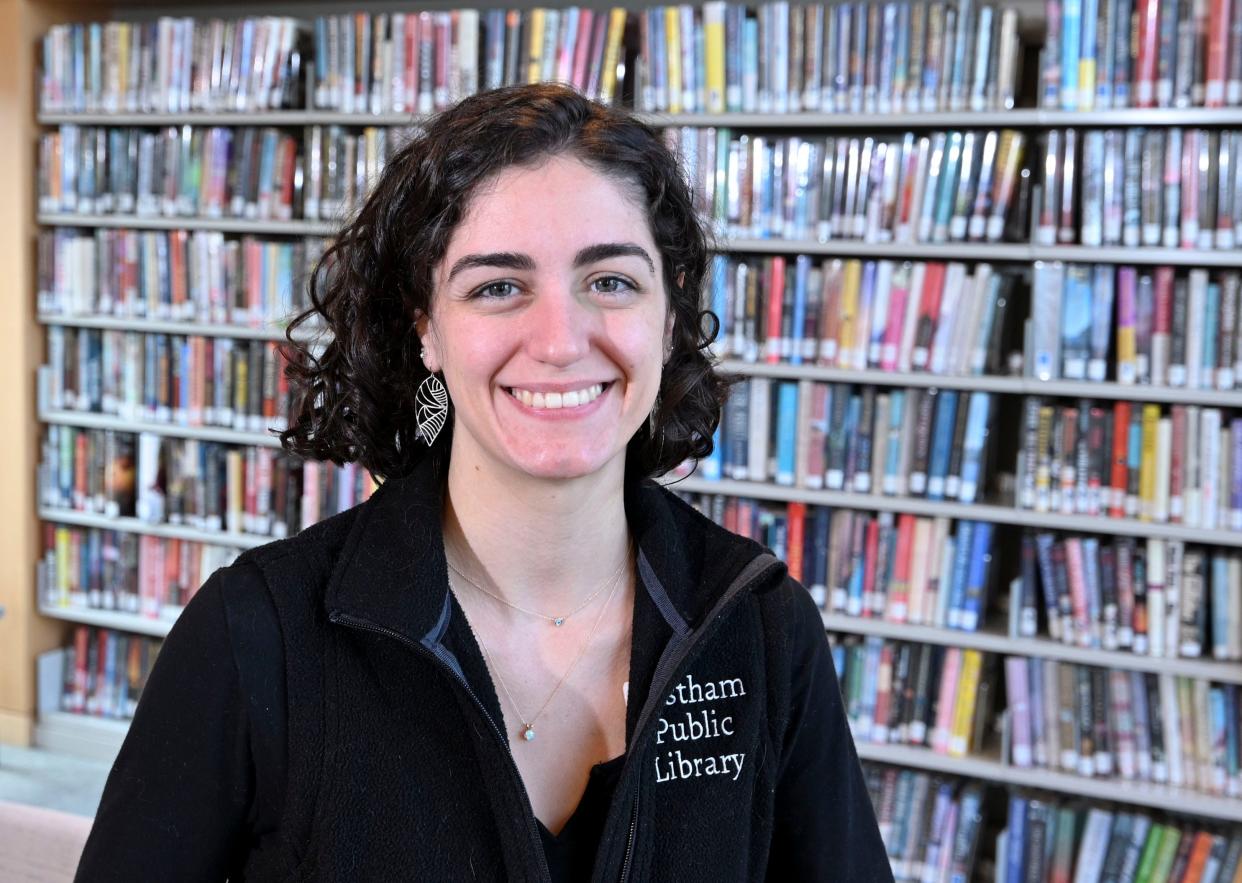Libraries pay much more than consumers for audiobooks they can't even keep. Is that fair?
Massachusetts librarians are calling for more affordability and flexibility in obtaining licenses for digital content, a proposal Cape Cod librarians say would benefit visually impaired patrons and save them time and money.
A bill filed with the Massachusetts Legislature would require publishers provide e-books and digital audiobooks to libraries at consumer prices and include an option to purchase a license that never expires. Usually, libraries pay five to six times the consumer cost for licenses, which can expire after one to two years, in contrast to physical books, where libraries have discounts, according to the Massachusetts Library Association.
"We pay so much more money than the public does, but then not only are we paying more, we don't get to keep the book,” Jennifer Pickett, the acting assistant director and reference librarian at Brooks Free Library in Harwich said. “For us in libraries, it's just extremely frustrating … you can't build this collection the way you would have a physical collection."

Filed by Rep. Ruth B. Balser, D-Newton, the measure aims to improve library access to electronic books and digital audiobooks, addressing the challenges that libraries face in maintaining access to digital content and ensuring that licensing and contractual agreements between libraries and publishers contain fair and equitable terms.
“After a certain amount of time, we continually have to repurchase the same materials if we want to have them permanently in our collections,” said Melanie McKenzie, the library director at Eastham Public Library. “Fewer and fewer publishers are offering permanent lending models, so again, we're constantly having to re-spend the same money on the same books over and over again.”
These challenges affect people with visual impairments who rely on font sizes or those who cannot physically visit libraries.
“We want to make sure that libraries can continue to meet their mission (of improved access) in the 21st century,” Balser said at a recent hearing. “If a company does license with libraries in Massachusetts, the terms have to be fair, and we want to make sure that libraries have full access to this material.”
Other benefits of improved access to electronic content include environmental advantages.
“Kids in school today do most of their research online,” Pickett said. “They get the Chromebooks, they have the technology skills and it should be cheaper since we're not printing books and we don't have to recycle the paper .…there are lots of good things about e-books.”
The redrafted bill was based on a popular Maryland bill, which was followed by a lawsuit filed by the Association of American Publishers. Balser’s updated proposal is said to adhere to federal regulations. However, opponents say the bill remains in disagreement with the U.S. Copyright Act and could diminish the value of authors' intellectual property.
Terry Hart, the general counsel for the Association of American Publishers, opposes the bill.
“If enacted, this legislation would devalue the intellectual property of authors and harm their right to seek market compensation,” Hart said. “This legislation threatens the entire creative economy that is so critical to Massachusetts and the nation (because) .... they can be easily copied, made perfect copies, made unlimited number of copies.”
Despite the challenges and opposition, libraries continue to commit to improving access to electronic content, driven by the core mission to provide information and knowledge to community members.
“We want to educate the people of our towns in our states, we want to share information, we want them to be able to read,” Pickett said. “I know that people need to be paid …. but there are other ways to do it and I just really hope that the organizations can work together, and different entities can do something that is for the good of everyone.”
Thanks to our subscribers, who help make this coverage possible. If you are not a subscriber, please consider supporting quality local journalism with a Cape Cod Times subscription. Here are our subscription plans.
This article originally appeared on Cape Cod Times: Mass. ebook bill triggers clash between public libraries, publishers
